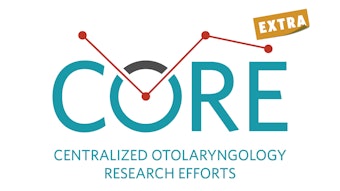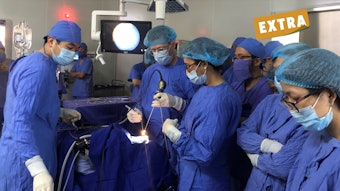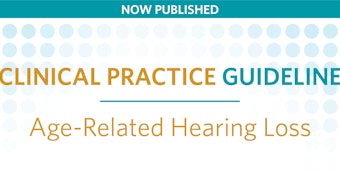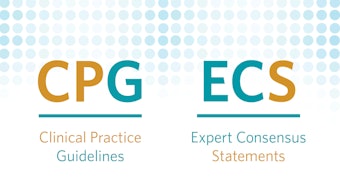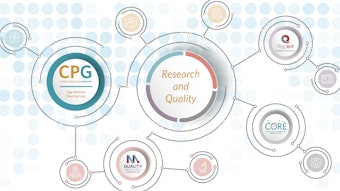Evidence in Otolaryngology: The Benefits of the Cochrane Collaboration
A review of the history, current state, and future of evidence-based medicine in otolaryngology with a focus on the Cochrane Collaboration.
John D. Cramer, MD, Victoria S. Lee, MD, and Matthew R. Naunheim, MD, MBA, the 2023 AAO-HNSF Cochrane Scholars
 From left to right: Victoria S. Lee, MD, University of Illinois Chicago, College of Medicine; John D. Cramer, MD, Wayne State University School of Medicine; Matthew R. Naunheim, MD, MBA, Massachusetts Eye and Ear.
From left to right: Victoria S. Lee, MD, University of Illinois Chicago, College of Medicine; John D. Cramer, MD, Wayne State University School of Medicine; Matthew R. Naunheim, MD, MBA, Massachusetts Eye and Ear.
As part of the 2023 American Academy of Otolaryngology–Head and Neck Surgery Foundation (AAO-HNSF) Cochrane Scholars Program, we attended the 2023 Cochrane Colloquium September 4 – 6, 2023, in London, England. This event marked the 30-year anniversary for the Cochrane Collaboration, a global, independent, multidisciplinary network and not-for-profit organization dedicated to producing credible, accessible, and unbiased health information. The theme was “Forward Together for Trusted Evidence,” exploring the future challenges around the trustworthiness of healthcare data and information.
The program was broad and comprehensive, covering topics such as planning and conducting various types of literature review, bias assessment, data synthesis methods, and basic and advanced statistical methods. The colloquium was truly multidisciplinary, with attendees including researchers, clinicians, statisticians, Cochrane employees, and patients. We gained a great deal of knowledge from this experience and highly encourage others interested in literature review to apply for the AAO-HNSF Cochrane Scholars Program.
(Applications for the 2024 program have recently closed, but those who are interested in applying in the future can visit the AAO-HNSF Cochrane Scholars Program page to learn more about the program and application process.)
Here, we review and reflect on the history, current state, and future of evidence-based medicine in otolaryngology with a focus on the Cochrane Collaboration.
Introduction
Evidence-based medicine (EBM) refers to the explicit and judicious use of the best-available evidence from research to improve the quality of care and spread best practices across all fields of medicine, including otolaryngology. Central to EBM is the systematic review, which synthesizes the best available evidence from the biomedical literature, clinical expertise, and patient preferences. The Cochrane Collaboration, established in the early 1990s, has been instrumental in promoting systematic reviews and evidence-based practices in medicine and otolaryngology.
Historical Background
In the 1970s and 1980s, British epidemiologist Archie Cochrane, CBE, emphasized the need for randomized controlled trials (RCTs) to inform healthcare decisions and explicit criteria to appraise published research in his book, Effectiveness and Efficiency: Random Reflections on Health Services (1972). This laid the groundwork for the future of systematic reviews. In 1992, the Cochrane group was founded, named in honor of Archie Cochrane. Its mission was to synthesize medical research findings to inform evidence-based healthcare decisions. The Cochrane group quickly became a leading resource for high-quality systematic reviews.
The Role of Systematic Reviews in Evidence-Based Medicine
Systematic reviews have become a core element of EBM, as they identify and evaluate the breadth of literature on a given topic, providing the highest level of evidence to guide clinical practice. By synthesizing the best-available research, EBM integrates biomedical literature, clinical expertise, and patient preferences, leading to improved patient care outcomes and increased quality of care. In compiling comprehensive bibliographies on a specific topic, systematic reviews also serve an essential role in guiding further evidence-based research.
Systematic Reviews in Otolaryngology: Early Adoption and Growth
Otolaryngologists have enthusiastically embraced EBM. In 1998, the Cochrane Ear, Nose and Throat Disorders Group published its first systematic reviews, addressing key clinical questions in the field. Early systematic reviews in otolaryngology were sparse and focused on specific interventions such as the use of betahistine for Ménière’s disease.1
Training and Development
Recognizing the need to train otolaryngologists in conducting and publishing systematic reviews, the AAO-HNSF leadership and the publisher of Otolaryngology–Head and Neck Surgery decided in 2006 to offer grant opportunities to help fund member attendance at the Cochrane Colloquium. Since then, 47 Cochrane Scholars have been trained, contributing significantly to the field.
 *2019, 2020, 2021, 2022 no program due to unforeseen circumstances.
*2019, 2020, 2021, 2022 no program due to unforeseen circumstances.
Expansion of Systematic Reviews
Over the same period, the number of systematic reviews in otolaryngology grew significantly. Researchers and clinicians recognized the value of systematic reviews in summarizing evidence and informing clinical practice. Key areas of focus included the management of acute and chronic rhinosinusitis.2, 3 Additionally, scoping reviews, which are a closely related methodology, have emerged to more broadly map and describe literature on topics that may not yet have enough available evidence for formal systematic review.
Integration into Clinical Practice
In the 2010s, systematic reviews became more integrated into clinical guidelines and decision-making processes within otolaryngology. Professional organizations, including the Academy, began incorporating systematic reviews into their clinical practice guidelines.4-7 This integration has improved the quality and consistency of care provided to patients.
Current Trends and Future Directions
In the 2020s, the use of systematic reviews in otolaryngology continues to grow, with an increasing emphasis on addressing complex clinical questions and incorporating diverse types of evidence, including observational studies and patient-reported outcomes. Innovations in advanced methodologies, such as network meta-analyses and individual patient data meta-analyses, are providing more nuanced insights into the effectiveness of interventions. Systematic reviews have also expanded outside of analyses of treatment-related interventions, allowing for broader definitions of intervention/exposure that include social, environmental, and genetic/endogenous factors to look at a multitude of intervention/exposure-outcome relationships.
Systematic reviews have profoundly impacted clinical practice in otolaryngology, providing a robust evidence base for managing various conditions and guiding treatment decisions. They have contributed to the development of clinical guidelines and improved patient outcomes by promoting evidence-based practice. Overall, the history of systematic reviews in otolaryngology reflects a broader trend towards EBM, with systematic reviews playing a crucial role in synthesizing evidence and informing clinical practice within the field.
Conclusion
Otolaryngologists’ collaboration with Cochrane has been instrumental in advancing EBM in otolaryngology. Systematic reviews have become essential tools for improving patient care, shaping clinical guidelines, and informing research priorities. As the field continues to evolve, the integration of new methodologies and technologies will further enhance the quality and impact of systematic reviews in otolaryngology, ultimately leading to better patient outcomes and more effective treatments.
References
- James, A.L. and M.J. Burton, Betahistine for Meniere’s disease or syndrome. Cochrane Database Syst Rev, 2001. 2001(1): p. CD001873.
- Rosenfeld, R.M., M. Singer, and S. Jones, Systematic review of antimicrobial therapy in patients with acute rhinosinusitis. Otolaryngol Head Neck Surg, 2007. 137(3 Suppl): p. S32-45.
- Rudmik, L. and Z.M. Soler, Medical therapies for adult chronic sinusitis: a systematic review. Jama, 2015. 314(9): p. 926-939.
- Rosenfeld, R.M., et al., Clinical practice guideline: adult sinusitis. Otolaryngol Head Neck Surg, 2007. 137(3 Suppl): p. S1-31.
- Rosenfeld, R.M., et al., Clinical practice guideline: Tympanostomy tubes in children. Otolaryngol Head Neck Surg, 2013. 149(1 Suppl): p. S1-35.
- Rosenfeld, R.M., et al., Clinical Practice Guideline: Otitis Media with Effusion (Update). Otolaryngol Head Neck Surg, 2016. 154(1 Suppl): p. S1-S41.
- Tunkel, D.E., et al., Clinical practice guideline: tinnitus. Otolaryngol Head Neck Surg, 2014. 151(2 Suppl): p. S1-S40.
